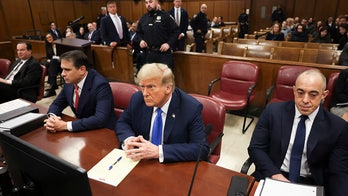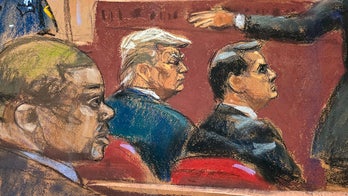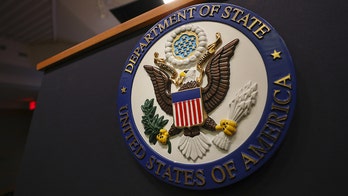GOFFSTOWN, New Hampshire -- Since 1935 a percentage of every dollar Americans earn has gone towards Social Security, a program designed to care for the nation's elderly that provides them with financial support beyond retirement.
But the nation's Social Security system is slowly crumbling, besieged by an aging population and experts predict funding will be exhausted by 2035, leading to insolvency. As politicians debate ways to reform the program, younger workers question why they're paying into something for which it increasingly looks like they'll never benefit.
Republican presidential candidate Newt Gingrich believes the answer is simple. Allow younger workers to establish optional retirement accounts in place of social security.
"I just want to say to every young person in America, why would you want to have an account where for the next 50 or 60 years some politician is going to tell you whether or not you're going to get your own money back?"
Speaking before a full-house at The New Hampshire Institute of Politics at Saint Anselm College in Goffstown, N.H., Gingrich unveiled a plan that would allow Americans to invest the money they currently contribute to social security in a 401(k) style system that he said will profit far beyond the current program.
"You can put them in very conservative bonds only, you can put them in much more aggressive and have stock only, some mix of stocks and bonds, it will be your choice."
To avoid a disastrous fluctuation in the market wiping out accounts, under the plan those who opt into the system would be guaranteed the minimum Social Security payment. The current system requires employers to match employee contributions, and while individuals would be free to choose where their money goes, companies would still be required to pay their half to the federal government.
Gingrich said studies show given the opportunity 96 percent of Americans would opt in, adding the plan will build a firm foundation for the economy because in essence everyone will have a vested interest.
"We're allowing you to save money which gets invested so you end up owning part of America, so you're now part of what would become a universal ownership system. And because it builds up interest over time the collective value for Americans becomes enormous."
Just how enormous? According to Gingrich this kind of program could ultimately increase the size of the U.S. economy by as much as $20 trillion, and as evidence he pointed to the success of similar programs elsewhere in the world.
"In Chile they have a personal Social Security account and in 31 years they have never had to have the government pay anybody because the account has generated so much money."
Speaking after the event, Gingrich advisor Peter Ferrara, a longtime proponent of privatizing Social Security told reporters implementing this kind of system could reduce federal expenditures by 50 percent over the next three decades.
The plan will undoubtedly further the debate about a program millions of Americans depend on. Zvi Bodie, a professor at Boston University's School of Management and a widely recognized expert on Social Security reform said selling any change is difficult.
"The American public has expressed its preference to keep the basic system working the way it does now. People make contributions during their working years and draw inflation-protected lifetime income benefits during retirement. With some adjustments to the formulas for contributions and benefits, the system can work well for as long as American voters want it to. It can even invest some or all of the contributions in the domestic or global capital markets. I do not think it makes sense to replace it with more of the 401(k) type systems used for voluntary retirement savings. I believe the current mix is about right. Of course, it is obvious why the asset management industry would like to replace it with more 401(k). Lobbies, lobbies everywhere. Who will protect the public interest?"
Today's announcement comes at a time the former speaker of the House is seeking to differentiate himself from a GOP field that has focused on flat tax proposals and IRS reform in an effort to capture the attention of voters. With the New Hampshire primary quickly approaching and his campaign gaining momentum Gingrich is surging in the polls. A USA Today/Gallup Poll released Monday shows him topping national polls with 22 percent, in a statistical dead heat with fellow Republican Mitt Romney.




